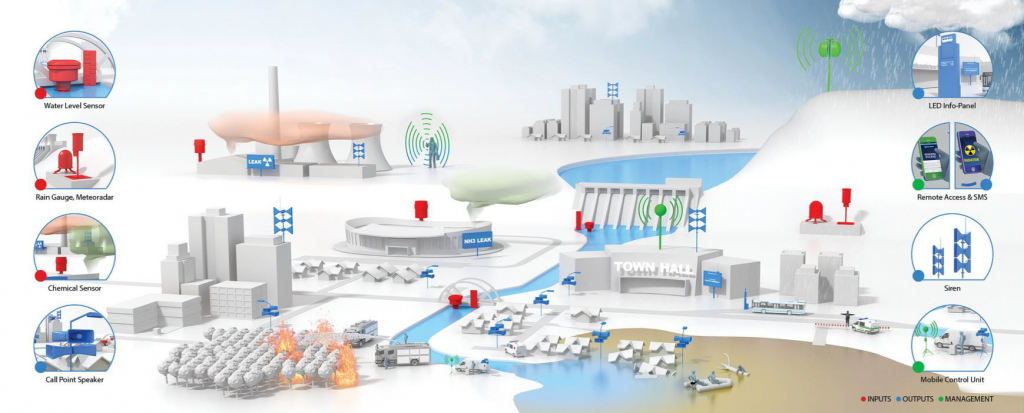Electronic Security Systems today play a fundamental but growing role in the protection of people and goods. According to their function, we can classify them as detection systems and control systems:
The first ones alert the occurrence of anomalous situations, of human, accidental or natural origin, such as an intrusion or flight, breach of a security perimeter, abandonment or removal of objects, improper parking or presence in place or as well as fires, gas leaks, floods, etc., and may also trigger appropriate combat or mitigation measures: closing or opening doors, fire extinguishing mechanisms, etc. Control systems generally allow the identification of persons or assets, record the passage and / or validate or prevent physical access.
Without ever dispensing with the human component, instead enhancing its effectiveness and efficiency and aiming to reduce or eliminate errors, Electronic Security Systems automatically and accurately identify the situations for which they were programmed, make decisions based on criteria and algorithms reliable, alert, record occurrences, always maintaining and even expanding the capacity of action and the reach of the human operator. The Electronic Security Systems monitor, without limit of distance or hours and work without fatigue, 24 hours a day, every day of the year.
The increase and greater sophistication of threats to the security of people and goods, together with the growing concern for privacy, Electronic Security has had to evolve very rapidly, both technologically and regulatory. On the other hand, the almost total convergence of technologies around key vectors such as IP networks, distributed processing and mobility, Electronic Security must be thought of in an integrated way with the other Information Systems and Communication Networks of Organizations (ICT). It is no longer feasible – not even useful – to install a system that is not integrated and technologically upgraded or does not meet all the legal requirements to operate. The installer himself is subject to very strict, technical and legal certification, so the first concern when implementing Electronic Security Systems is precisely the choice of the right partner.

RedeRia, present in the ICT market in general and in Electronic Security in particular for almost a quarter of a century, advises, studies, designs, supplies, implements, supports legalization and operation and maintains systems of any nature and size. Today, we have some of the most emblematic electronic, civil and military security projects, both nationally and internationally, designed and implemented to exceed customer expectations:
- – Video surveillance and video intelligence;
- – Intrusion Detection and Perimeter Protection;
- – Detection and combat of fire, gases, floods;
- – Access control and attendance;
- – Public alert systems for natural hazards or other threats;
- – Public address and deterrent systems;
- – Support system for castaways and victim location in a timely manner;
